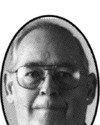Mr. Speaker, in 1990 Zacharias Kunuk, Paul Qulitak and Norman Cohn founded Igloolik Isuma Productions, Canada's first Inuit owned independent video production company.
Only four years old, the company won this year's Bell Canada award for outstanding achievement in video art. It won this award for its Nunavut series, 13 programs depicting Inuit life in Igloolik in 1945.
The actors are local people, real people doing real things in real life. The series shows Inuit history and culture as told and lived by Inuit, and therein lies its power.
I was in Igloolik last summer for part of the filming and spent some time talking to Zacharias. He is a young man of extraordinary vision and talent. His professionalism and dedication are something to be admired.
I congratulate Igloolik Isuma on its tremendous achievement and wish it continued success.













